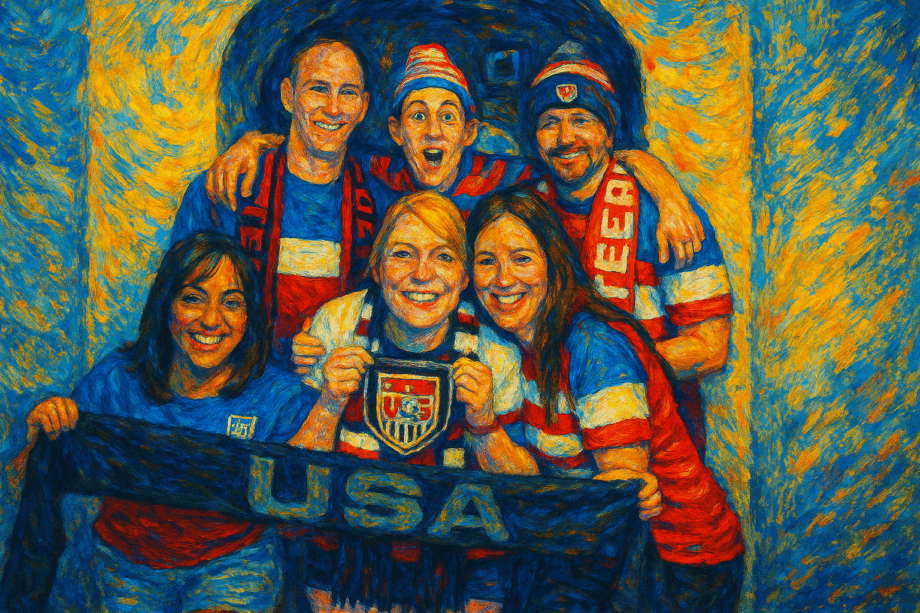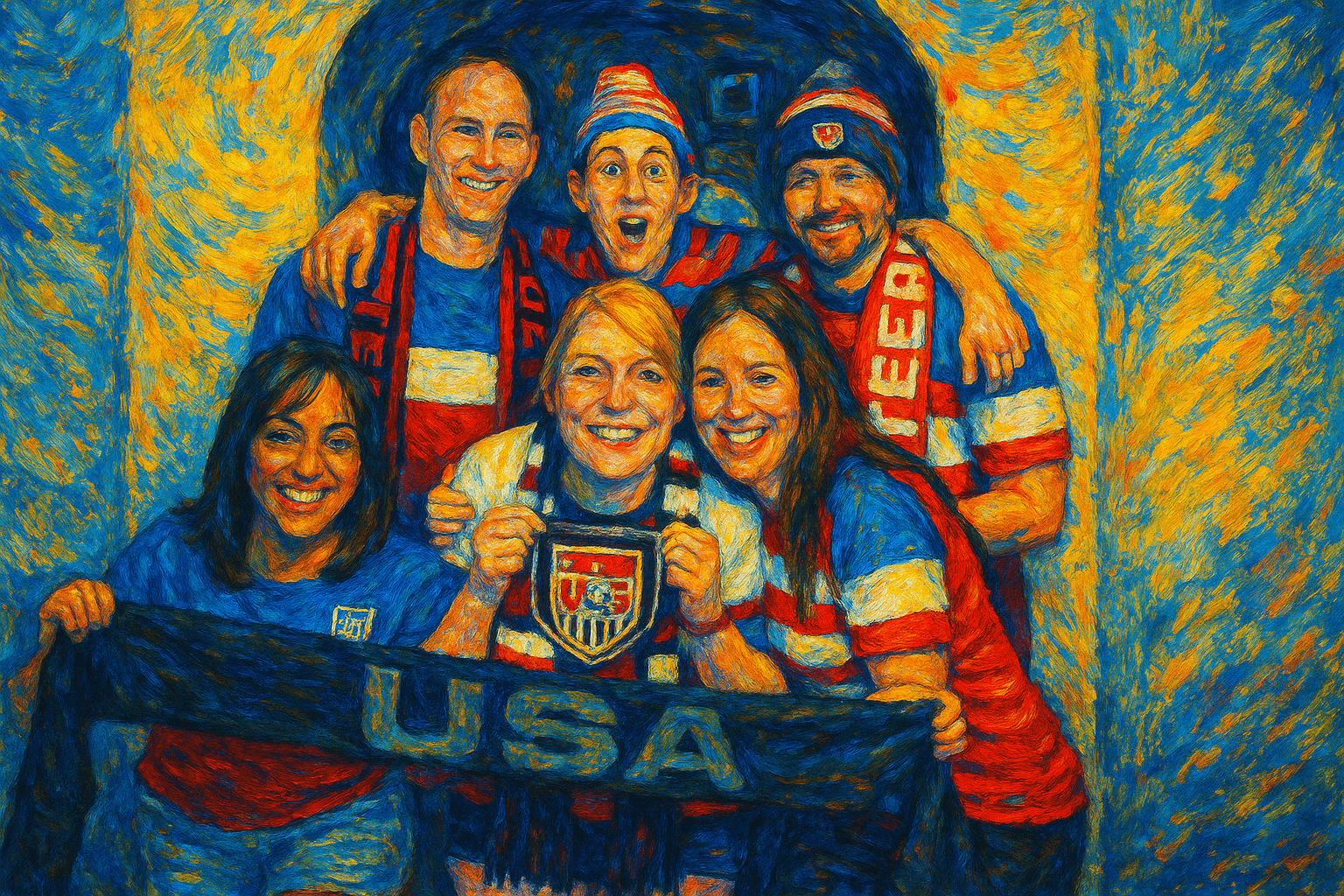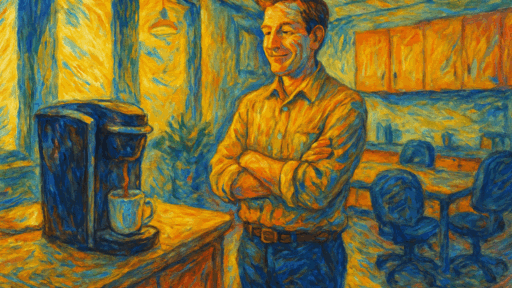“Shared joy is a double joy, shared sorrow is half a sorrow.”
Swedish proverb
There was a long stretch of my life when I pretended to be the kind of person who watched sports with other people.
I wasn’t.
I wanted to be, the same way I’ve always wanted to be someone who enjoys small talk or feels comfortable in a crowd. I liked watching soccer, and I liked my friends. I just didn’t like watching soccer around my friends.
Something about the fusion made my skin hum in that specific, social-anxiety way.
Too many variables.
Too many opinions.
Too many chances for someone to ask if offsides “is basically trespassing.”
But several years ago, during a World Cup, I somehow said yes to hosting a watch party.
I didn’t mean to.
It happened the way all dangerous things happen: in a group text, in a moment of optimism.
FRIEND: “Hey, you should host one of the matches!”
ME: “Absolutely!”
ALSO ME, IMMEDIATELY: “Why did I just say absolutely?”
On the morning of the match, I went to the store to buy snacks with the stunned silence of a man walking into his own intervention. I held up a bag of chips, turned to Shelley, and asked, “Does this seem… enough?”
She stared at me like I’d asked whether gravity applied on weekends.
By kickoff, my living room was full.
People brought drinks, cheese balls, children, and—at one point—an entire family I’d never met who entered my home with the confidence of realtors at an open house.
They set their things down.
They made themselves comfortable.
One of the kids asked if I had Wi-Fi.
I wasn’t entirely sure he knew whose house he was in.
And then the match began.
What I hoped would be a quiet, reverent experience—maybe even spiritual—instantly became a carnival. Every play was met with screaming. Every pass required commentary. Someone suggested muting the commentators “so we can talk more,” and my vision momentarily tunneled.
At one point, one of the visiting children shouted “SHOOT IT!” during a goal kick, and I briefly left my body.
I used to think this kind of thing was an assault on the sport.
But the truth is, it was an assault on control—
mine, specifically.
For the first twenty minutes, I tried to protect the match from the people in my house.
I perched on the edge of the ottoman like a guard dog who studied abroad.
I winced at every incorrect opinion.
I refilled chip bowls like a man distracting himself from a crisis.
And then—somewhere between the first half and the bottom of my beer—something in me softened.
Not suddenly.
Not dramatically.
Just… enough.
Someone made a joke that wasn’t really about soccer at all—
it was just people being people.
I laughed.
Then someone cracked a joke about one of my favorite players—
the sort of thing I once would’ve defended like a publicist.
Instead, I laughed again.
Not at them—at myself.
At this version of me who clung so tightly to the idea that loving something meant protecting it from other people.
Then our team scored.
My living room detonated.
Chips flew.
Beer sloshed.
That same kid—the goal-kick kid—screamed like he had personally put the ball in the net.
Someone hugged me with the force of a chiropractor doing missionary work.
And I felt it—
this sudden, messy joy that rose from the room and pressed itself into me.
Loud joy.
Shared joy.
Joy I never would’ve chosen, but was suddenly—confusingly—glad to have.
It caught me off guard.
It cracked something open.
Because somewhere in all that chaos, I realized I didn’t love soccer the way I thought I did.
I didn’t love it for the analysis,
or the solitude,
or the purity of the match.
I loved it because it put me in rooms with people I cared about.
I liked soccer.
I loved my friends.
And maybe—just maybe—those two weren’t meant to be separated.
I didn’t learn that all at once.
It took a few tournaments and a handful of watch parties to realize the game wasn’t the fragile thing—I was.
And eventually, something in me shifted for good.
Now, during every World Cup, I still host.
People still watch the game out loud.
I still cringe.
Someone still suggests muting the commentators.
Kids still spill things, and the room still feels fuller than I planned for.
But now I laugh.
Now I join in.
Now I’m part of the moment instead of protecting it.
Because somewhere along the line, I realized the match wasn’t the thing.
Not really.
The noise was the thing.
The mess was the thing.
The people were the thing.
And the joy—the loud, shared, ridiculous joy—was the thing I didn’t even know I was missing.
The scoreline mattered, sure.
But the full, chaotic room mattered more.
Even the kid shouting “shoot it!” during a goal kick.
Especially him.
Because that kid didn’t ruin anything.
He helped save it.














